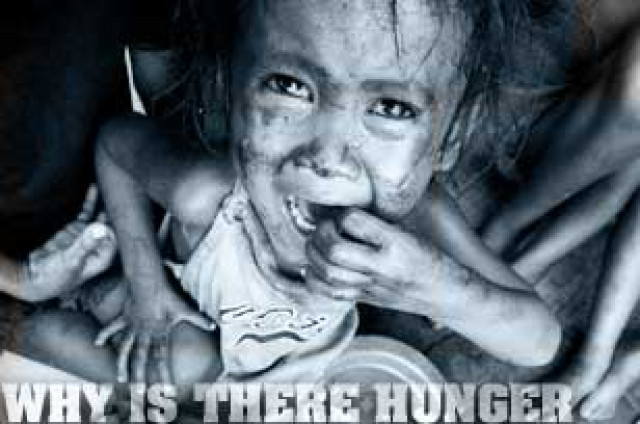Mounting malnutrition
Levels of malnutrition in northern Sindh around 23 per cent, south fares better with rates around 21 per cent.

Mounting malnutrition
It is unknown for how long the people of the province have lived in this fashion, eating barely enough to keep themselves alive. The survey states that there is no way of ascertaining if recent floods are in any way responsible for the situation, or whether easier access to women and children, as a result of mass displacements, have brought forward information about their prevailing plight which was not known before. Teams of doctors from Karachi who have visited Sindh have been appalled at the malnutrition they have seen, especially among women who have borne many children and who routinely receive a less nutritious diet than their husbands or sons.
We know that Sindh houses some of the poorest people in the country. But given poverty levels in Balochistan, parts of Khyber-Pakhtunkhwa and southern Punjab, there is every reason to believe that malnutrition is a wider problem. Certainly it is one that should be given far greater attention. The fact that people are starving in our country, while the rich and privileged indulge in extravagances of all kinds, is a disturbing one. As a country with greater resources than those of sub-Saharan Africa, we should be able to feed all our people. The abject failure on this count should make us think much harder about our policy priorities and where we are headed as a nation, which continues to struggle to provide enough to meet even the most basic needs of its people.
Published in The Express Tribune, January 29th, 2011.














COMMENTS
Comments are moderated and generally will be posted if they are on-topic and not abusive.
For more information, please see our Comments FAQ